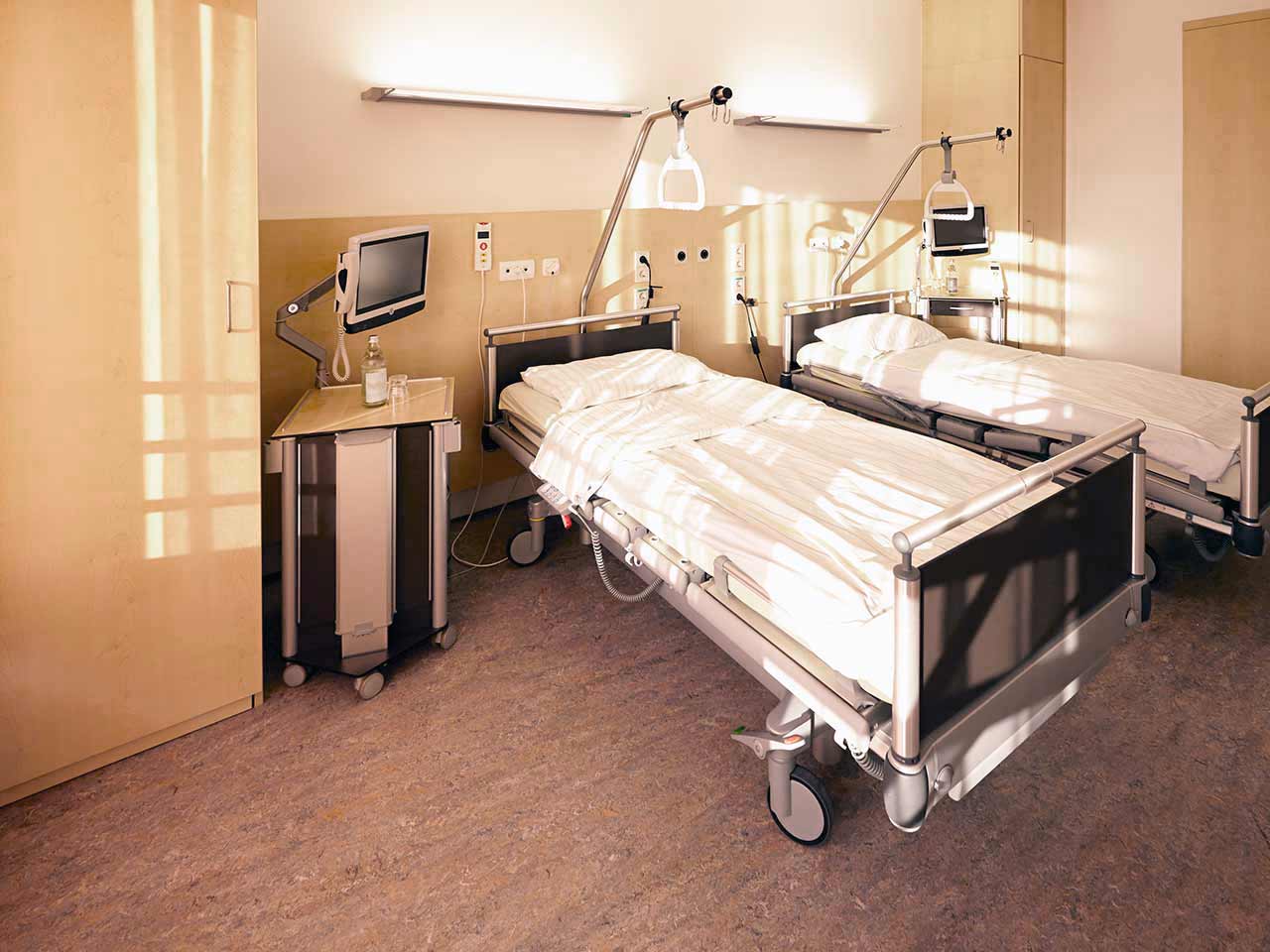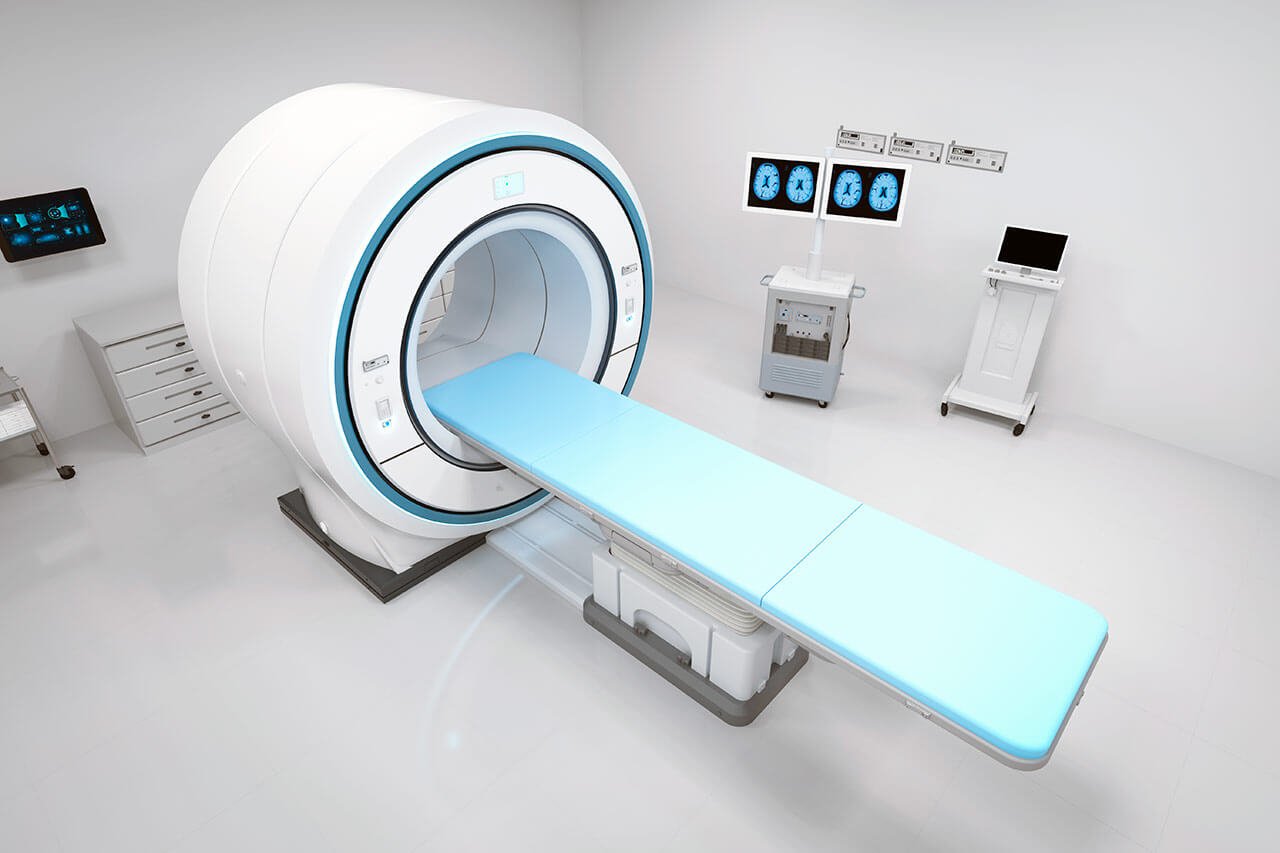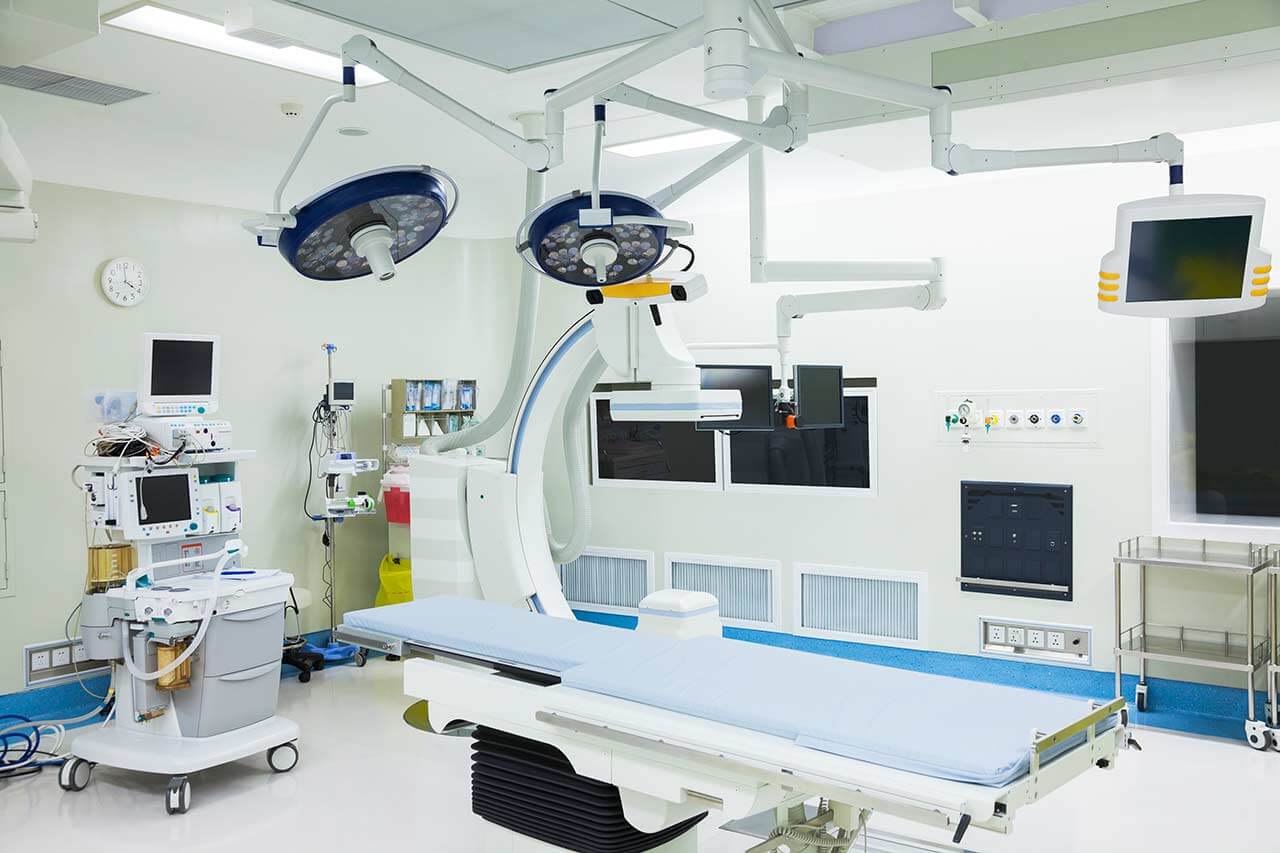
The program includes:
- Initial presentation in the clinic
- clinical history taking
- review of medical records
- physical examination
- laboratory tests:
- complete blood count
- general urine analysis
- biochemical analysis of blood
- inflammation indicators (CRP, ESR)
- indicators blood coagulation
- hormonal examination
- TSH, fT3, fT4
- thyroid ultrasound
- thyroid scintigraphy if indicated
- abdominal ultrasound
- treatment in the intensive care 5 days
- consultation of related specialists
- symptomatic specific treatment
- the cost of essential medicines and materials
- nursing services
- control examinations
- full hospital accommodation
- developing of further guidance
Required documents
- Medical records
Service
You may also book:
 BookingHealth Price from:
BookingHealth Price from:
About the department
The Department of Endocrinology at the ViDia Hospital Karlsruhe provides the full range of diagnostic and therapeutic services in the field of its competence. Patients with diseases of the thyroid gland, parathyroid glands, adrenal glands, pituitary gland, and gonads receive medical care here. The department holds the status of a center specializing in the treatment of type 1 and type 2 diabetes mellitus, which is confirmed by the certification from the German Diabetes Society (DDG). The specialists consult patients on all aspects of the disease and successfully perform insulin pump therapy. The doctors also have vast experience in the treatment of patients with bone mineral metabolism disorders (osteoporosis). The department has succeeded in ultrasound diagnostics: the rooms are equipped with advanced ultrasound systems adapted for classical sonography, contrast-enhanced ultrasound examinations, duplex sonography, ultrasound-guided puncture, etc. Patients are treated in specialized outpatient clinics. More than 5,000 patients with clinical cases of varying severity are admitted here annually. The department's endocrinologists cooperate closely with nuclear medicine specialists and surgeons. Doctors jointly consider complex cases of thyroid diseases. The department is headed by Dr. med. Felix Flohr.
The department has gained vast experience in the care of patients with thyroid diseases. The most common are hyperthyroidism, hypothyroidism, autoimmune thyroiditis, goiter, follicular adenoma, and thyroid cancer. To confirm or exclude thyroid pathology, the patient should undergo comprehensive diagnostics, including clinical examination and palpation of the thyroid gland, thyroid ultrasound, and laboratory tests for thyroid hormones. If thyroid cancer is suspected, a biopsy will also be performed. During treatment, the department's specialists most often use individually developed drug therapy regimens. The patient receives drugs that normalize the level of thyroid hormones. In cases of thyroid cancer or follicular adenoma, it is most often impossible to do without a surgical intervention, which is performed by highly specialized surgeons.
An integral part of the department's clinical practice is the treatment of type 1 and type 2 diabetes mellitus. The department is certified according to the requirements of the German Diabetes Society (DDG), which guarantees patients top-class medical care in this area. Diabetes mellitus is an incurable disease, so in order to compensate for it, patients need to adapt their lifestyles. This includes adhering to a diet recommended by the doctor in order to control blood sugar levels, give up bad habits (drinking alcoholic beverages and smoking), increase physical activity, etc. Patients undergoing treatment in the department can attend special courses where they will receive all the necessary information about the peculiarities of life with diabetes mellitus, self-monitoring of blood sugar levels, insulin therapy, etc.
In type 1 diabetes mellitus, the human immune system attacks the insulin-producing cells of the pancreas, resulting in insufficient insulin levels in the blood. The main treatment methods for type 1 diabetes mellitus are diet (eliminating sweets, fatty foods, and some other products), abstaining from alcohol and nicotine, as well as insulin therapy. The department's endocrinologists prefer insulin pump therapy when insulin is automatically injected into the patient's body with the help of a special electronic device. Precise doses and individual settings help the patient maintain blood sugar levels within the target range.
In type 2 diabetes mellitus, the pancreas continues to produce insulin, but tissue sensitivity to it decreases, resulting in higher blood glucose levels. The first-line treatment for patients with type 2 diabetes mellitus is diet therapy with the appropriate balance of proteins, fats, and carbohydrates. For patients with this type of diabetes mellitus, doctors often prescribe peroral medicine to lower blood sugar levels, and insulin therapy is rarely required.
The treatment regimen for each case of diabetes mellitus is developed individually. The specialists regularly adjust it, taking into account changes in blood sugar levels, the general well-being of the patient, and other characteristics.
The department's key clinical areas include:
- Diagnostics and treatment of thyroid diseases
- Diagnostics and treatment of parathyroid diseases
- Diagnostics and treatment of adrenal diseases
- Diagnostics and treatment of pituitary diseases
- Diagnostics and treatment of types 1 and 2 diabetes mellitus
- Diagnostics and treatment of osteoporosis
- Diagnostics and treatment of other endocrine diseases
Curriculum vitae
Dr. med. Felix Flohr holds the position of Head Physician in the Department of Endocrinology at the ViDia Hospital Karlsruhe. From 2008 to 2016, the specialist worked as a Senior Physician in the Department of Gastroenterology and Endocrinology at the ViDia Hospital Karlsruhe, as well as the Head of the Department of Ultrasound Diagnostics at the same hospital. From 2000 to 2008, Dr. med. Felix Flohr worked in the Department of Gastroenterology and Endocrinology at the University Hospital Freiburg. He held the position of Senior Physician and Deputy Head of the Department of Endocrinology and Diabetology at this medical facility.
Dr. med. Felix Flohr is a board certified specialist in Internal Medicine, Endocrinology and Diabetology. He is also an instructor in ultrasound diagnostics for the German Society of Ultrasound in Medicine (DEGUM).
Photo of the doctor: (c) ViDia Kliniken Karlsruhe
About hospital
The ViDia Hospital Karlsruhe is a modern medical facility with a rich history and traditions. The medical complex is an academic hospital of the University of Freiburg, granting patients access to advanced university medicine and the very latest therapeutic developments. The hospital first opened its doors in 1851 and, since then, has maintained a leading position in the European medical arena. The health facility offers a state-of-the-art technical base, comfortable infrastructure, and highly qualified doctors. All this allows the hospital to provide patients with top-class healthcare in accordance with modern standards. In addition, the hospital's team honors Christian traditions, emphasizing a humane attitude towards the patient and striving to provide understanding and support.
The hospital employs a large team of specialists, consisting of over 3,200 staff members, including 400 highly qualified physicians. The medical team admits more than 50,000 inpatients every year, and about 100,000 patients are diagnosed and treated on an outpatient basis or in a day hospital. More than 3,000 babies are born in the maternity rooms of the Department of Obstetrics every year. More and more patients, including those from abroad, come to the hospital for medical care annually.
The hospital has 24 specialized departments with 25 highly certified, narrowly focused centers integrated into them. A large Cancer Center certified according to the German Cancer Society (DKG) standards also operates here. Thus, one of the main clinical focuses of the medical complex is cancer treatment. The hospital also excels in other specialties, such as general surgery, abdominal surgery, thoracic surgery, orthopedics, cardiology, endocrinology, otolaryngology, pulmonology, gastroenterology, and others. There are 37 operating rooms available here for surgical treatment, the equipment of which corresponds to the highest technical level. Priority is given to performing minimally traumatic operations using minimally invasive, endoscopic, arthroscopic, and endovascular techniques.
The ViDia Hospital Karlsruhe enjoys a high reputation in Germany and far beyond its borders. The health facility successfully combines innovative medicine with Christian values, thanks to which the patient receives not only effective treatment but also care, understanding, and support.
Photo: (с) depositphotos
Accommodation in hospital
Patients rooms
The patients of the ViDia Hospital Karlsruhe stay in comfortable single and double rooms with modern design. Each patient room has an ensuite bathroom with a shower and a toilet. The standard room furnishings include an automatically adjustable bed, a bedside table, a table and chairs, a wardrobe, a telephone, a TV, and a radio. Wi-Fi access is also available in the patient rooms.
Patients can also be accommodated in enhanced comfort rooms. These rooms are very spacious and are additionally equipped with a safe, a mini-fridge, and upholstered furniture.
Meals and Menus
The patients of the hospital are offered three tasty meals a day: breakfast is served buffet-style, and there are several set menus to choose from for lunch and dinner.
If, for some reason, you do not eat all of the foods, you will be offered an individual menu. Please inform the medical staff about your dietary preferences prior to treatment.
Further details
Standard rooms include:
![]() Toilet
Toilet
![]() Shower
Shower
![]() Wi-Fi
Wi-Fi
![]() TV
TV
Religion
There are several chapels on the territory of the hospital. Regular Catholic and evangelical services are held here. Patients can also visit one of the chapels at any time to find a quiet place to pray, if desired.
Accompanying person
Your accompanying person may stay with you in your patient room or at the hotel of your choice during the inpatient program.
Hotel
You may stay at the hotel of your choice during the outpatient program. Our managers will support you for selecting the best option.





